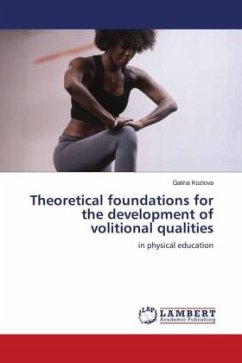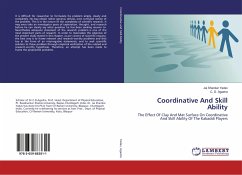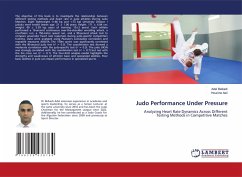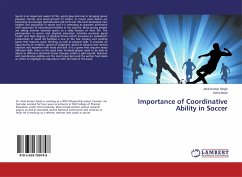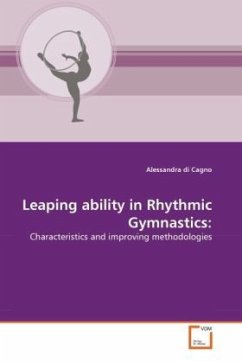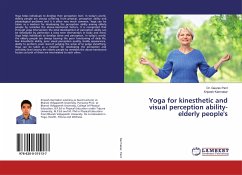
The Impact of Pressure-Full Play on Volitional Control Ability
Influence on Individual Performance and Game Outcome in Critical Situations in Basketball
Versandkostenfrei!
Versandfertig in 6-10 Tagen
30,99 €
inkl. MwSt.

PAYBACK Punkte
15 °P sammeln!
In basketball there are situations in which different factors appear and demand the players' mental and technical stability, which determine the result. During that time even the highest quality player may miss a shoot that cost the team the victory. This study focuses on how basketball players perform in different game situations. The theory of volitional control by Julius Kuhl (2001) provides an explanation for the differences in performance. It describes cognitive and affective processes that modulate an individual characteristic interplay of different psychic systems. The player's predispo...
In basketball there are situations in which different factors appear and demand the players' mental and technical stability, which determine the result. During that time even the highest quality player may miss a shoot that cost the team the victory. This study focuses on how basketball players perform in different game situations. The theory of volitional control by Julius Kuhl (2001) provides an explanation for the differences in performance. It describes cognitive and affective processes that modulate an individual characteristic interplay of different psychic systems. The player's predisposition - whether he is an action- or a state-oriented - is crucial. This study examines the different behavior of pressure-full and normal players, with pressure-full play describes a player's behavior that puts the opponent under pressure. Pressure in sports is a suitable tactical, technical, and psychological means to maintain or increase one's own performance and to reduce the effectiveness of the opponent at the same time. This study investigates whether or not volitional control and pressure-full play have an effect on the performance in basketball in critical and non-critical situation.



